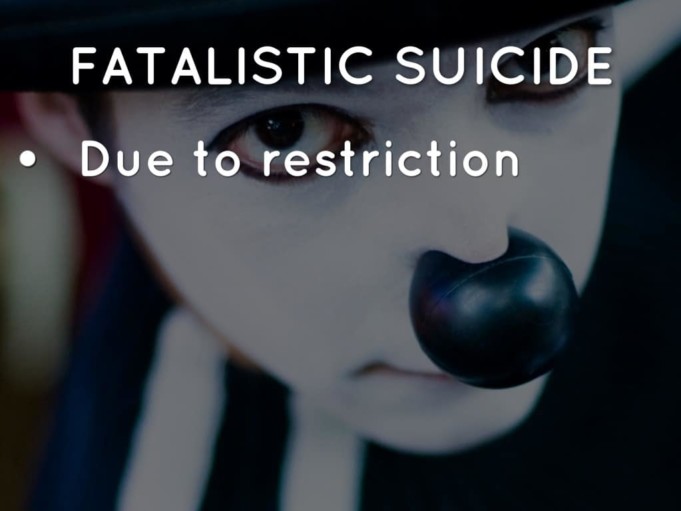We live in a world governed by rules and regulations hence the law of reward and consequences has become a medium for a character, lifestyle and emotional control. When people become hopeless and helpless because they feel stuck in a position due to social rules, what options do they have?
With the event of the industrial revolution and division of labor, lifestyles began to change, and workers began to struggle to adapt to the new nature of their work. Regulations became tightened, and that often made it difficult for some people to fit into the new system of things.
The monotony of labor was a resultant effect of the division of labor which made workers during this era bored of their jobs because they had no opportunity to rotate their duties or get promoted thus feeling trapped in their job routine. In other words, they were slaves to their jobs because they couldn’t achieve more than they were offered.
Their escape options? Well, they leaving their jobs wasn’t a wise option at the time because the possibilities for a better job was almost non-existent, so suicide was a way out. You would be correct to say that was a few hundred years ago, welcome back to the present.
China’s one child per family policy was a medium to check its population growth and prevent overpopulation. There was a punishment for families who violated this regulation.
Thus, citizens were stripped of their rights to plan their families (oppression). This seemingly harsh rule could have caused a couple to commit suicide if they lost their only child after the woman must have past childbearing age. However, this law was reviewed in the year 2015, and the amendment now allows for two children per family.
Cultures with a robust caste system where class Mobility is absent is a possible breeding ground for suicidal people.
In a situation where a person is born into a family belonging to the lowest social class and seeks to move up the social ladder but is restricted by stringent societal rules, such a person is most likely to become frustrated and pull out of such social stratification by dying.
If you are probably wondering what this kind of suicide is called, it is called Fatalistic suicide.
What is fatalism?
Fatalism is somewhat similar to predeterminism. It is the belief that we as humans have no role to play in influencing what happens to us as we have no power over the future nor our actions thus we take things as are and believe the hands of fate orchestrate all occurrences.
Struggling to get more from life than is already offered or fighting to change one’s situation is regarded as destiny’s plan, and the outcome of every move one makes, no matter how spontaneous is already predetermined.
Thus, an attitude of pulling out of perceived inevitable unfavorable consequences is possible. In various religions, devotees are made to believe in the existence of a higher invisible being/beings who are responsible for everything that occurs in their lives and also is responsible for their human presence.
This entity or entities are believed to reward people according to their deeds and cannot be influenced by lower life forms. Now that we understand what fatalism means, we can proceed to learn about fatalistic suicide.
Èmile Durkheim grouped the conditions that lead to suicide into two; Social relationships and social regulations. Each of these two groups has two suicide types under them, but for this article, we will be focused on high social rules and its relationship with suicide.
Fatalistic suicide is self-destruction caused by tight regulation and passive oppression. Marriage, family, occupation, government, religion and the military are social institutions that have in one way or another, regulated the activities of people through extreme rules and high expectations.
The life of an individual with fatalistic suicidal ideation is characterized by a lack of purpose and a feeling of hopeless in his predicament because he has no option of an escape from dormancy to living a better life or achieving his dreams.
In a study data collected from 1997 to the year 2000, it was discovered that there was a high Fatalistic suicide rate among women in Iran especially in areas with little female education, urbanization, less or no female participation in the workforce.
Because Iran is a patriarchal country, these women are restricted to a life of childbearing and handling of household chores under the supervision of their sometimes physically abusive husbands.
The passive roles played by women regarding social and economic activities coupled with the stress of birthing and raising plenty of children pushes them to seek freedom in the form of Fatalistic suicide.
Nigeria is one of the fastest growing economies in West Africa. Universities in Nigeria produce up to 5000 graduates yearly, and the country had an estimate of 148 universities as at 2017.
With the labor market having little or no capacity to absorb this population of young people launched yearly into the society, there arose a fierce struggle for the few available job opportunities. Most of these fresh graduates have no job experience thus they seek entry-level positions that offer on the job training. These are often very scantily available.
However, With most of the available employment opportunities requiring a minimum of five years and above work experience, it becomes difficult for these youths to become gainfully employed and have a sense of fulfilment after acquiring an education.
How does this lead to Fatalistic suicide?
With the strict regulations when it comes to years of working experience as a prerequisite for employment, youths who have got no skill and have relentlessly sort employment opportunities for years and found none, are likely to get frustrated enough to slip into depression and nurse suicide thoughts out of hopelessness.
Furthermore, Fatalistic suicide is paid the least attention amongst all the types of suicide Èmile Durkheim described because of the limited information he provided on it. Hence, to fully understand it one has to relate the little information he provided in his work to the present-day situations.
Even though strict social regulations can lead to suicide, a lack of it can equally yield the same result in the form of anomic suicide. There are other forms of suicide which are egoistic suicide and altruistic suicide, do check them out as well.












